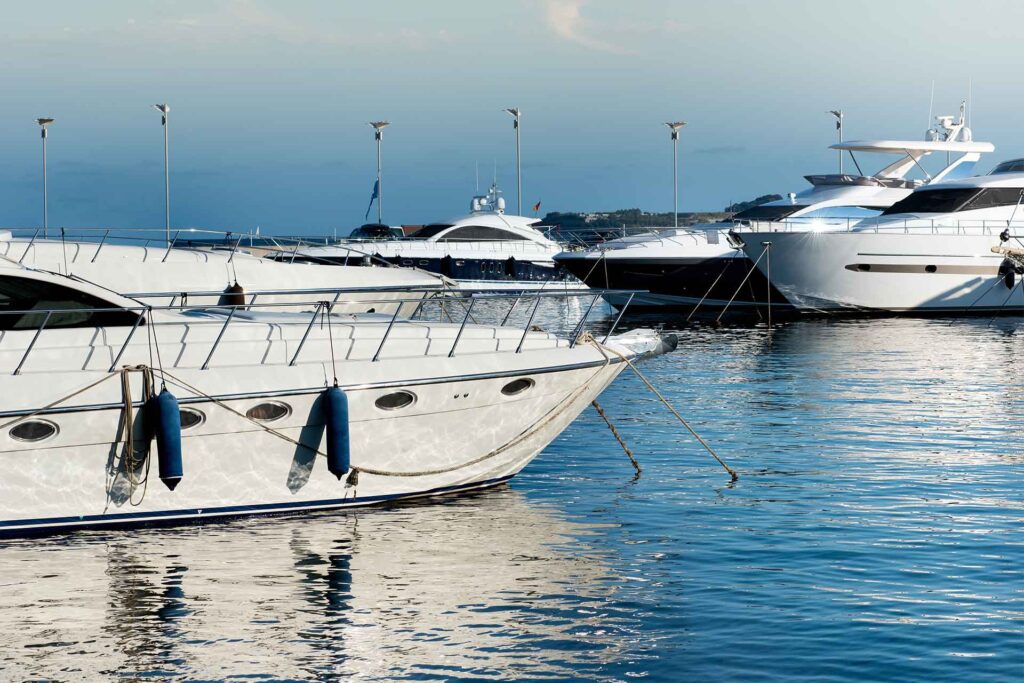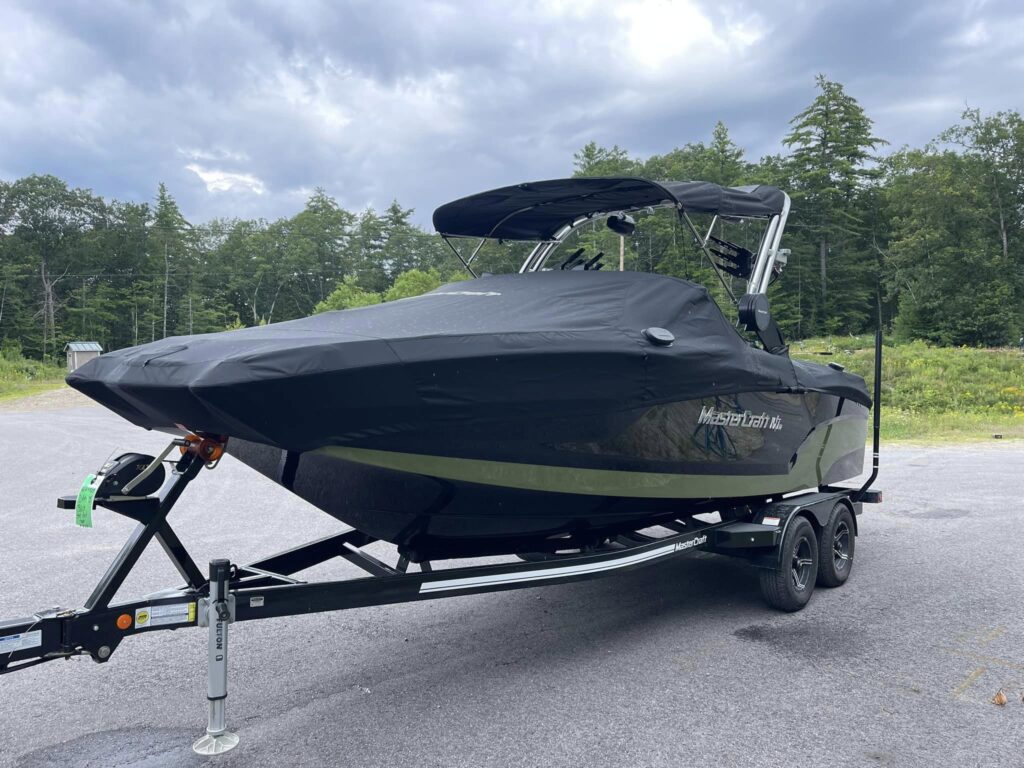Purchasing a boat is an exciting endeavor, but understanding how long are boat loans is important before jumping in on your purchase. Boat loans can vary significantly in terms of length, depending on the type of boat, the lender, and your financial situation. At Float Finance, we specialize in boat financing and strive to offer flexible loan options that suit your needs.
In this article, we’ll break down the factors that influence boat loan terms, typical durations, loan alternatives, and the types of loans available. We’ll also touch on where to find the best financing options, explain the difference between secured and unsecured loans, and help you navigate fixed-rate versus variable-rate loans.
By the end, you’ll have a comprehensive understanding of how long boat loans last and the options available to you. Whether you’re a first-time buyer or looking to upgrade, this guide will help you make an informed decision. Ultimately, we’ll show how Float Finance can make your boat financing, and yacht financing process as smooth and stress-free as possible.

Factors That Influence How Long Are Boat Loans
The length of a boat loan depends on several key factors (answering quickly on how long are boat loans), each of which plays an important role in determining your loan options. These factors help lenders assess the risks involved and offer terms that are best suited to both parties. Let’s take a closer look at what influences loan terms:
- Boat Type and Cost: Larger or more luxurious boats often come with longer loan terms. This is because more expensive purchases require more time for repayment, allowing for lower monthly payments over a longer period.
- Credit Score: A higher credit score typically qualifies you for better loan terms, including lower interest rates and longer repayment periods. Lenders view individuals with good credit scores as lower-risk borrowers.
- Down Payment: The more you can pay upfront, the less you’ll need to finance. A larger down payment can result in lower monthly payments, shorter loan terms, or more favorable interest rates.
Understanding these factors helps you plan ahead and set realistic expectations for the type of loan you may qualify for. For example, if you’re purchasing a high-value boat, expect to finance over a longer term. Meanwhile, if you have a strong credit score and can make a significant down payment, you may be able to negotiate better terms.

Typical Loan Terms for Boat Financing
When it comes to boat loans, the repayment period can range widely depending on the size and type of boat. This flexibility allows buyers to spread the cost over time, making boat ownership more accessible. Typically, the larger or more expensive the boat, the longer the loan term.
- Short-Term Loans (2–5 years): These are common for smaller or less expensive boats. While monthly payments may be higher, shorter terms mean you’ll pay less interest over the life of the loan.
- Medium-Term Loans (5–10 years): These loans are typical for mid-range boats. They strike a balance between affordable monthly payments and a reasonable repayment period.
- Long-Term Loans (10–20 years): Larger boats, such as yachts, may have loan terms stretching up to 20 years. Although the lower monthly payments make it easier to afford a high-cost boat, the interest payments over time can add up.
The loan term you choose should align with your financial goals. For example, if you’re looking to pay off your boat quickly and save on interest, a short-term loan is the way to go. However, if you want more flexibility in your monthly budget, a longer loan term may be preferable.

Secured vs. Unsecured Loans
When it comes to boat financing, there are two main types of loans to consider: secured and unsecured loans. Understanding the difference between the two can help you determine which option best fits your needs. Secured loans use the boat as collateral, while unsecured loans do not.
- Secured Loans: A secured loan uses the boat itself as collateral. This gives lenders peace of mind, as they can repossess the boat if payments are missed. As a result, secured loans tend to offer lower interest rates and longer terms.
- Unsecured Loans: Unsecured loans, on the other hand, don’t require collateral. While this might seem appealing, these loans often come with higher interest rates and shorter terms since the lender assumes more risk.
- Which to Choose?: A secured loan is typically the better option for those seeking lower interest rates, but if you don’t want to risk losing your boat, an unsecured loan might provide peace of mind despite higher costs.
Deciding between these two types of loans depends on your financial situation and how much risk you’re willing to take. For many boat buyers, secured loans are more attractive due to their lower rates, but they do carry the risk of repossession if payments aren’t made on time.

Fixed Rate vs. Variable Rate
Once you’ve decided whether to go with a secured or unsecured loan, the next decision involves choosing between fixed-rate and variable-rate loans. Each option comes with its own advantages and disadvantages, so it’s important to weigh them carefully.
- Fixed-Rate Loans: Fixed-rate loans provide consistency. Your interest rate stays the same throughout the life of the loan, which means your monthly payments remain stable. This option is great for those who want predictability in their payments.
- Variable-Rate Loans: With a variable-rate loan, your interest rate may fluctuate over time based on market conditions. While this can sometimes result in lower initial payments, there’s a risk that rates could rise, increasing your monthly payment.
- Which to Choose?: Fixed-rate loans are generally more popular for boat loans due to their stability. However, if you’re confident in a steady or decreasing interest rate environment, a variable rate could potentially save you money.
It’s important to assess your financial comfort level before choosing between fixed or variable-rate loans. If you prefer knowing exactly what you’ll pay every month, fixed-rate loans are usually the better choice. Variable-rate loans, however, can offer initial savings but may lead to higher costs down the line.

Alternatives to Boat Loans
While traditional boat loans are the most common form of financing, they’re not the only option available to prospective boat owners. Depending on your financial situation, there are several alternative financing methods to explore. These alternatives can make more determinations as to how long are boat loans.
- Home Equity Loans: If you have significant equity in your home, you may be able to borrow against it to finance your boat. Home equity loans generally offer lower interest rates, but they come with the risk of losing your home if you default.
- Personal Loans: Unsecured personal loans can be used to buy boats, but they usually come with higher interest rates and shorter terms compared to traditional boat loans. This option may be better for smaller boat purchases.
- Leasing: While less common, leasing a boat can be an option for those who prefer short-term use without the long-term financial commitment of buying.
It’s worth considering these alternatives if a traditional boat loan isn’t feasible for you. Each option comes with its own risks and benefits, so it’s important to carefully evaluate which is the best fit for your financial situation. Especially given how long are boat loans and how long do you want to go for a boat loan.

Where to Find Boat Loans
Finding the right lender for your boat loan is crucial. Different lenders may offer varying loan terms, interest rates, and flexibility. Some focus on specific types of boats or buyers, while others have a broader range of options. Knowing the best places will get you the best results as to how long are boat loans.
- Banks and Credit Unions: These traditional financial institutions often offer competitive rates and loan terms, especially if you have an existing relationship with them.
- Marine Lenders: Specialized marine lenders understand the nuances of boat financing and often offer more tailored loan products. They are familiar with the boating industry and can provide guidance specific to your needs.
- Boat Dealerships: Many boat dealerships have partnerships with lenders to provide in-house financing options. This can simplify the process of buying and financing your boat in one place.
It’s important to shop around and compare offers from different lenders to ensure you’re getting the best possible terms for your boat loan. Float Finance works with a variety of lenders and can help you navigate the process to find the loan that best fits your needs.

Boat Loan Calculator
To assist you in understanding your potential monthly payments, Float Finance offers a Boat Loan Calculator. This tool allows you to input details like the loan amount, interest rate, and term to estimate your monthly payment. Keep in mind that these numbers are estimates and may vary based on your actual loan terms. You can also find out how long are boat loans by estimating here.
Monthly Payment Calculator
Monthly Payment:

Conclusion: Float Finance Is Here to Help
Navigating the world of boat financing can seem complicated, but with Float Finance, the process is straightforward and stress-free. There are plenty of factors we have gone through surrounding how long are boat loans. Whether you’re in the market for a small boat or a luxury yacht, we work with a network of lenders to secure the best financing terms possible for you.
In addition to traditional boat loans, we offer refinancing options and can help you explore alternatives like home equity loans. No matter your financial situation, we’ll provide the expertise you need to make informed decisions.
Contact Float Finance today to get started and take the first step toward owning the boat of your dreams. We hope this helps answer your questions as to how long are boat loans.
